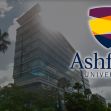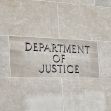Four former and current nursing students who attended Seattle University are suing the school with allegations that the school falsely advertised a nursing master's degree program, all while knowing it was not approved to offer the program.
Emma Carlson, Casey Chatam, Stephanie Lopez, and Shelby Stephens allege that the private university put together, advertised, and then proceeded to provide a nursing and healthcare education program without implementing the necessary credentials to get it approved by the state. Despite failing to secure state approval, the school went on to collect $70,000 a year in tuition from students who were part of the two cohorts that went through the program.
The nursing program in question is a doctorate nursing degree that is offered on an accelerated four-year track. The program was designed for individuals who already have a bachelor's degree in fields not related to nursing. In 2019, the university announced that it would award students in the program a master's degree after they completed a year and a quarter into the program. This would allow students to take a licensing exam for nursing and begin working in the field while they finished their accelerated doctorate program. According to the plaintiffs, the school advertised students would walk away with a master's degree after a year and a quarter, but the students claim that they were left walking away with a bachelor's degree instead.
Thirty-three-year-old plaintiff Shelby Stephens was over a year into the program when she took time away from school to gain practical experience in the nursing field. Stephens was under the impression that she had progressed through the program and had earned her master’s degree. After taking a brief leave from the university in the summer of 2020, she got hired for a job in a California hospital in the fall. Stephens was still waiting on notification of her master's degree to begin working. She shared with the Seattle Times that during the waiting period, “All Seattle U kept saying was, ‘Trust the process,'” adding, “They never led me to believe that was even in question.”
The following spring, the University alerted students that the state did not approve the master's degree program and that students would not receive a master's degree after a year and a quarter of studies. The notice expectedly left students in the cohort, including Stephens, confused and upset.
“I’m scarred a lot by all of this,” she said. “I looked into many other schools, but none of my classes would really transfer over and it would be a sense of almost starting completely over.”
According to Seattle University, the school sought approval from the state Nursing Care Quality Assurance Commission during the spring of 2020 regarding the accelerated master's degree. The University shared that it “fully expected” the program to be approved.
Bonnie Bowie, Seattle University’s associate dean for graduate programs, shared with students during an all-cohort meeting in March 2021 that the school and the state Commission had a back-and-forth regarding the program and the Master's Degree offered. Bowie told students that the master's degree could not be awarded because not enough hours of graduate-level clinical experience were included in the curriculum. The state commission requires 700 hours of clinical experience for a master's degree, but the program only offered 600 hours in the first five quarters.
Following the lawsuit, University officials shared a statement that denied any claims of false advertising. Instead, the school blamed a communication issue between it and the students. The statement explains in part,
“Although the university regrets the way information was communicated to doctoral students in 2020 about the proposed degree, any allegation that the university marketed or advertised the degree with an intent to deceive students is categorically false.” The statement added, “The university cares deeply about its students and regrets any disruption this caused.”






